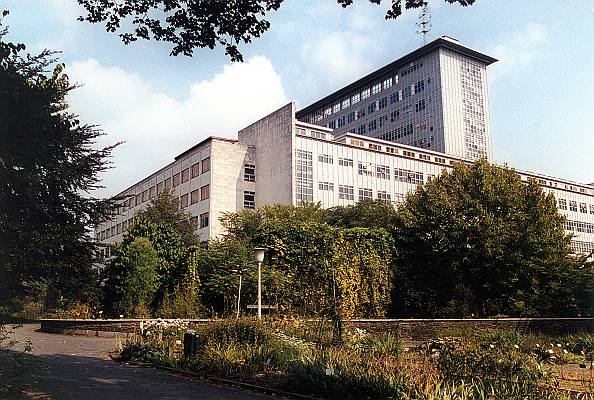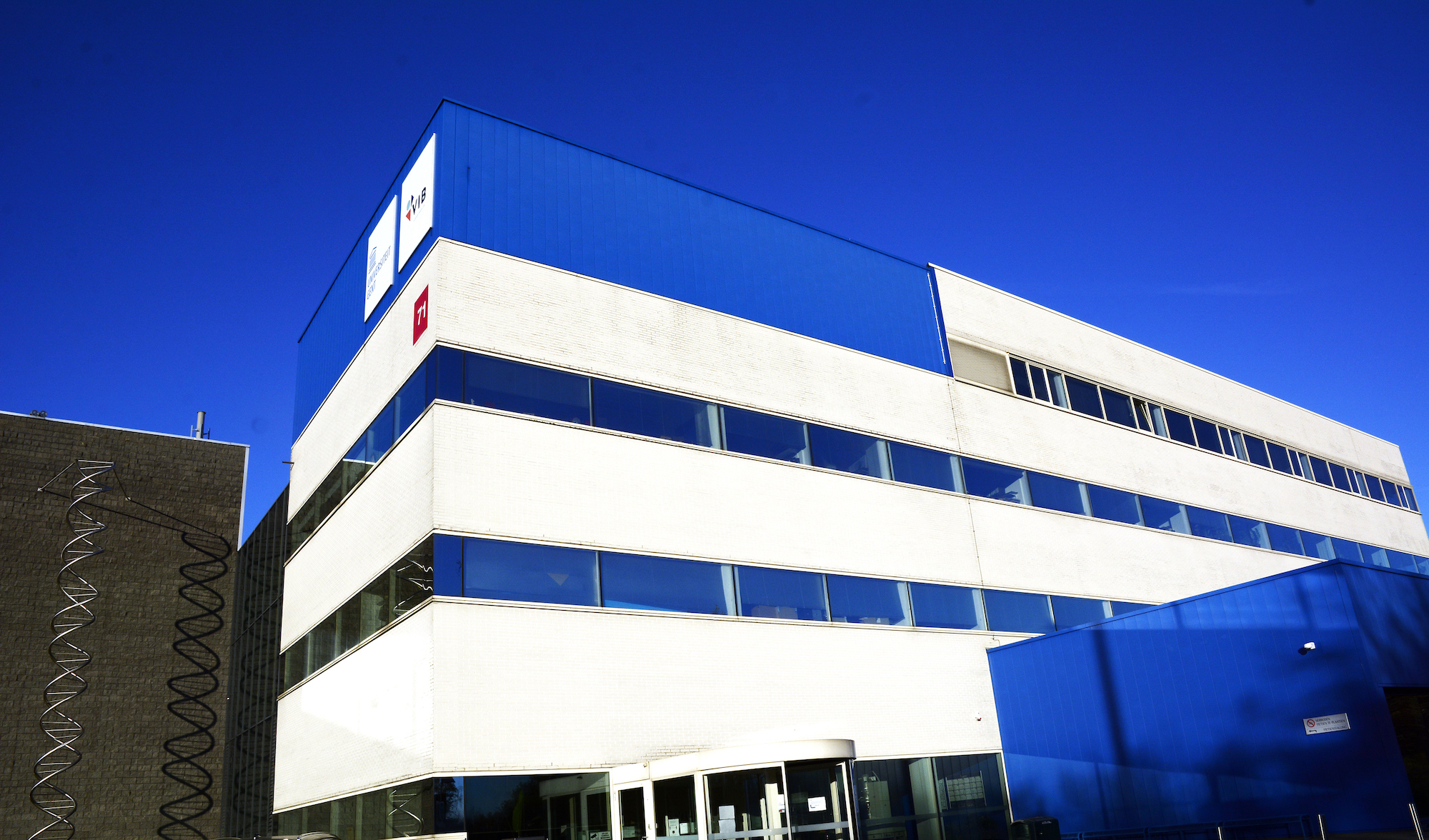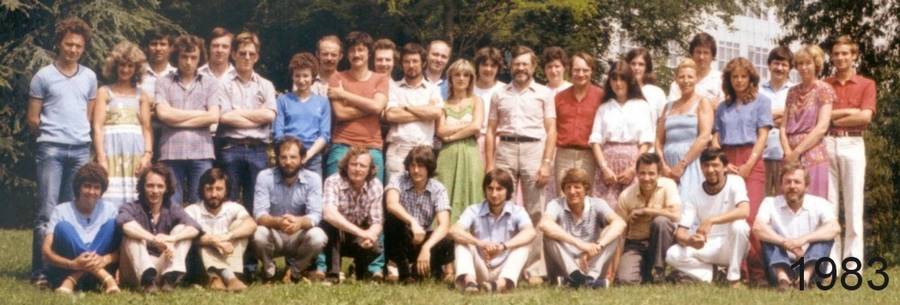 Walter Fiers
Walter Fiers founded the Laboratory of Molecular Biology (LMB) at Ghent
University (UGent). From
those early days, an impressive collection of scientific contributions to molecular biomedicine
was generated by his team, which grew steadily both in size and expertise. The highlights of
that nascent era of life sciences in Flanders, notably in the Laboratory of Molecular Biology at
Ghent University, included determination of the first complete genome sequence of an animal
virus, i.e. the Campus Ledegancktumor virus SV40 (1978), and later on cloning and functional
analysis of several human cytokines (interferon-β, interferon-γ and IL-2). With the growing
experience in mammalian cell cultivation and in oncogenic viruses, further research became
largely focused on the molecular biology of cancer, and more specifically on the possibility of
using molecular cell and gene technologies to develop new approaches for improved diagnosis as
well as therapies.
After 1985, research focused more specifically on tumor necrosis
factor (TNF), which has the remarkable property, especially when combined with interferon-γ, of
killing many types of tumor cells. Presently, it is successfully used in the clinic for
locoregional therapy. But TNF is also a potent inflammatory cytokine, leading to septic-like
shock and other pathologies. Improving the therapeutic potential of TNF required a detailed
molecular knowledge of its mechanism of action at the levels of protein structure, cell biology,
and in vivo behavior. Moreover, its cytotoxic action contributed to the unraveling of the
molecular mechanism of apoptosis, an important and rapidly evolving research domain that was
also successfully explored at the LMB.
In 1995, the Government of Flanders decided to found a new Research Institute: VIB (Flanders
Institute for Biotechnology). The scientific mission of VIB was the establishment of an
autonomous interuniversity structure to create in Flanders a stable and stimulating
environment for high-quality basic research in life sciences, particularly in biotechnology.
Other important objectives of the VIB were training of expert molecular biotechnologists,
technology transfer of proprietary findings, and stimulation of a scientifically
well-informed social dialogue on biotechnology. The Laboratory of Molecular Biology at Ghent
University became the VIB-Department of Molecular Biology (DMB).

In 1997, Walter Fiers retired as scientific director of the
Department of Molecular Biology and was succeeded as a scientific director by
Frans Van Roy.Because of its activities in molecular biomedical
research, the department was correspondingly renamed
Department of Molecular
Biomedical Research (DMBR) in 2002.
In 2003, the DMBR moved into the new UGent-VIB FSVM I research
building.
Since 2012, the DMBR is headed by the departmental director,
Bart
Lambrecht, who is further focusing the research on unraveling the
mechanisms of inflammation and immunity.
In September 2013, the Department was
therefore renamed
Inflammation Research Center (IRC). From January 1,
2017 on the Inflammation Research Center is called
VIB-UGent Center for
Inflammation Research.



 Walter Fiers founded the Laboratory of Molecular Biology (LMB) at Ghent
University (UGent). From
those early days, an impressive collection of scientific contributions to molecular biomedicine
was generated by his team, which grew steadily both in size and expertise. The highlights of
that nascent era of life sciences in Flanders, notably in the Laboratory of Molecular Biology at
Ghent University, included determination of the first complete genome sequence of an animal
virus, i.e. the Campus Ledegancktumor virus SV40 (1978), and later on cloning and functional
analysis of several human cytokines (interferon-β, interferon-γ and IL-2). With the growing
experience in mammalian cell cultivation and in oncogenic viruses, further research became
largely focused on the molecular biology of cancer, and more specifically on the possibility of
using molecular cell and gene technologies to develop new approaches for improved diagnosis as
well as therapies.
Walter Fiers founded the Laboratory of Molecular Biology (LMB) at Ghent
University (UGent). From
those early days, an impressive collection of scientific contributions to molecular biomedicine
was generated by his team, which grew steadily both in size and expertise. The highlights of
that nascent era of life sciences in Flanders, notably in the Laboratory of Molecular Biology at
Ghent University, included determination of the first complete genome sequence of an animal
virus, i.e. the Campus Ledegancktumor virus SV40 (1978), and later on cloning and functional
analysis of several human cytokines (interferon-β, interferon-γ and IL-2). With the growing
experience in mammalian cell cultivation and in oncogenic viruses, further research became
largely focused on the molecular biology of cancer, and more specifically on the possibility of
using molecular cell and gene technologies to develop new approaches for improved diagnosis as
well as therapies.
 In 1997, Walter Fiers retired as scientific director of the
Department of Molecular Biology and was succeeded as a scientific director by
Frans Van Roy.
In 1997, Walter Fiers retired as scientific director of the
Department of Molecular Biology and was succeeded as a scientific director by
Frans Van Roy.